
Everything to know about red diamonds
Red diamonds, with their mesmerizing hue and captivating sparkle, stand as the pinnacle of rarity and beauty in the world of gemstones. This blog delves into the elusive world of these extraordinary gems, uncovering the secrets behind their vibrant color and unparalleled scarcity.

Unveiling the Mystique of Red Diamonds
Red diamonds emerge as the rarest and most enigmatic diamonds in the world, their history steeped in mystery and their allure capturing the fascination of jewelers and collectors alike for centuries. This exploration dives into the remarkable characteristics that distinguish red diamonds, from their unique coloration and the geological marvels behind their formation to their incredible value in the contemporary market. At the forefront of these rare gems is the Moussaieff Red Diamond, the largest known red diamond, a beacon of luxury and rarity that exemplifies the enchantment of its kind. Let’s dive in!
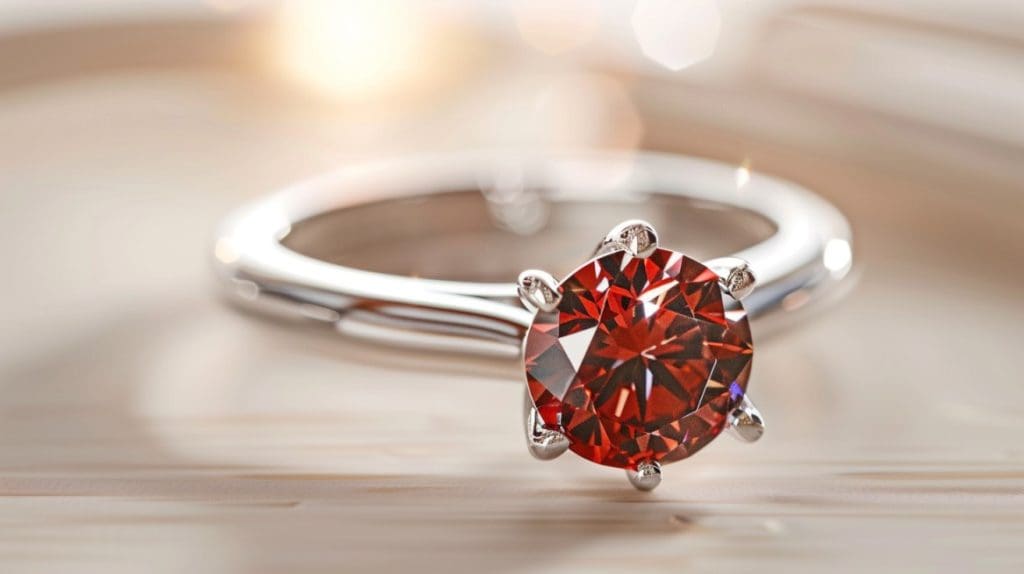
From Earth’s Core to Crown Jewel: The Composition and Origin Red Diamonds
Red diamonds are among the most mysterious and captivating gemstones found on Earth. Their formation begins deep within the Earth’s mantle, where extreme pressure and temperatures act on carbon atoms, arranging them into a crystalline lattice structure characteristic of all diamonds. However, what sets red diamonds apart is a rare phenomenon known as plastic deformation. This process occurs as the diamond makes its way from the depths of the Earth to the surface, often through volcanic eruptions. The intense stress and strain the diamond experiences cause defects within its lattice structure, which in turn affect how the diamond absorbs and reflects light. Specifically, these defects allow red diamonds to absorb certain wavelengths of light, giving them their distinctive red color.
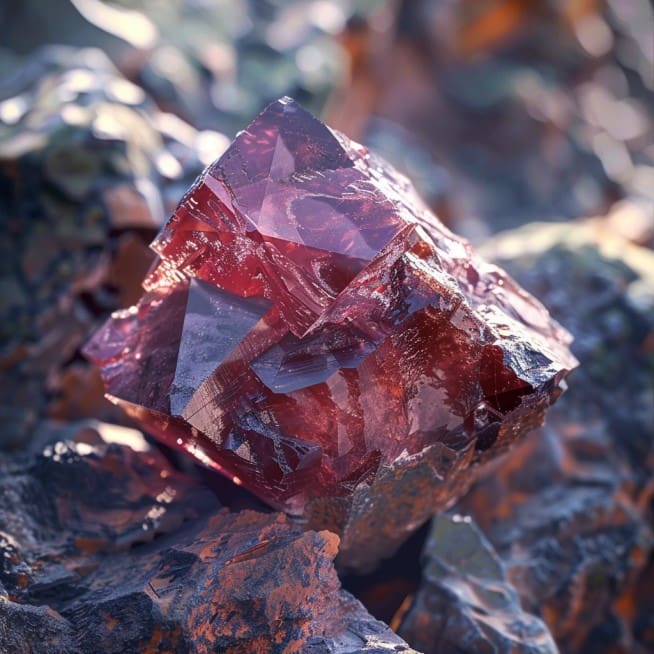
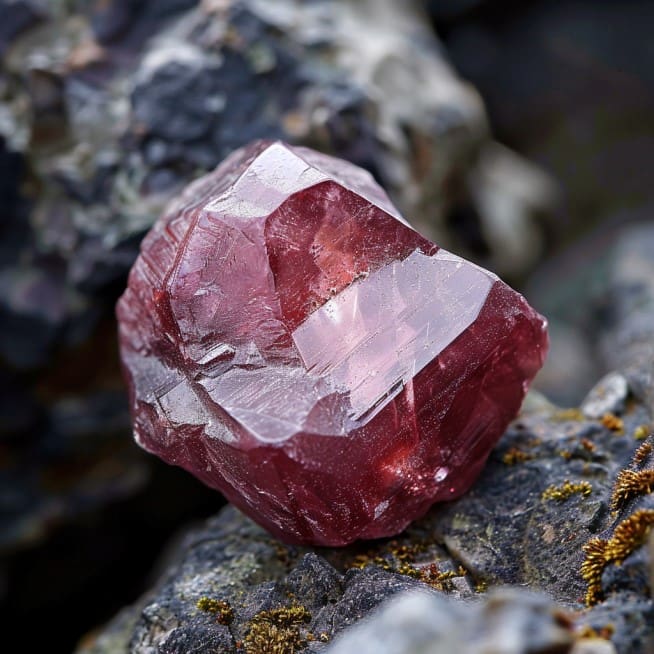
The composition of red diamonds is primarily that of pure carbon, like all diamonds. Yet, it’s the specific arrangement of these carbon atoms and the unique lattice defects that imbue red diamonds with their color. Unlike other colored diamonds that owe their hues to the presence of impurities such as nitrogen or boron, the red in red diamonds is purely a result of these structural anomalies. This makes them incredibly rare, as the conditions required for this coloration are highly specific and uncommon. The rarity of the red diamond, combined with its striking beauty, places it among the most sought-after and valuable gemstones in the world.

Red Revelations: How Do Red Diamonds Get Their Color?
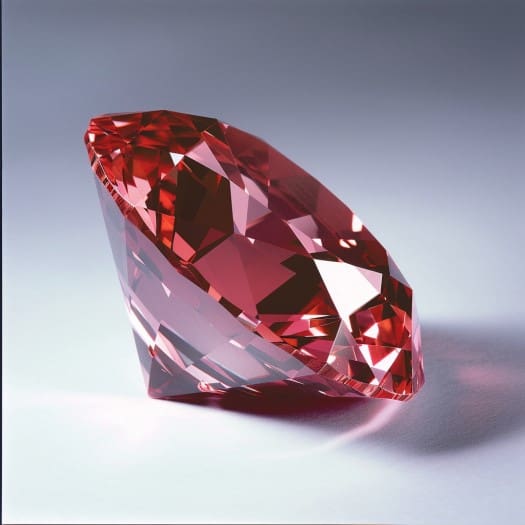
The color of red diamonds is a marvel of nature, a rarity that illuminates the intriguing interplay between light and the atomic structure of diamonds. Unlike many colored gemstones whose hues are the result of chemical impurities, the red in these diamonds emerges from a different process altogether. This process involves the structural anomalies within the diamond’s crystal lattice, which are caused by plastic deformation during their ascent from deep within the Earth.
As red diamonds journey from the high-pressure, high-temperature environments of the Earth’s mantle to the surface, they undergo a unique transformation. The intense pressure and stress they encounter can cause slight shifts in their carbon atoms, creating defects within their otherwise orderly lattice. These defects alter the way light travels through the diamond, specifically affecting how certain wavelengths of light are absorbed. It is this selective absorption that gives red diamonds their mesmerizing color, a phenomenon that does not rely on the presence of any impurities
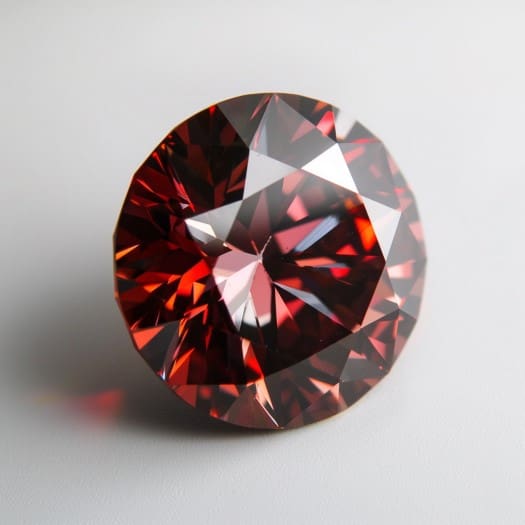

Unbreakable Brilliance: The Value an Durability of Red Diamonds
Red diamonds stand as paragons of both rarity and durability, attributes that elevate their value to the pinnacle of the gemstone market. Their worth is significantly influenced by their scarcity; red diamonds are among the least common colored diamonds, making them highly sought after by collectors and enthusiasts around the world.
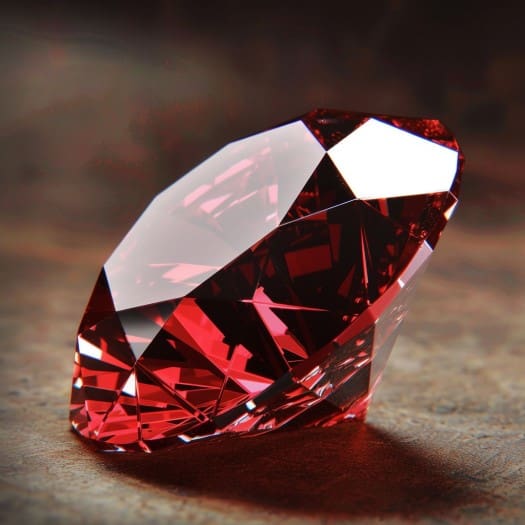
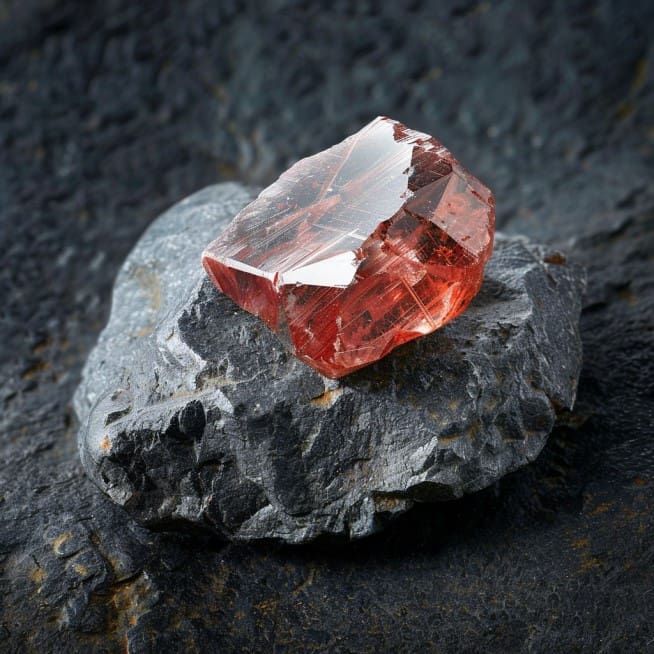
This rarity, coupled with their mesmerizing color, dictates their premium value, often fetching astronomical prices at auctions. On the Mohs scale of mineral hardness, red diamonds share the same unassailable rating of 10 as their colorless counterparts, making them the hardest known natural material on Earth. This remarkable hardness not only contributes to their allure and value but also ensures their enduring legacy, as they resist scratching and maintain their breathtaking beauty over lifetimes.

Rare, Radiant, and Resilient: The Market Allure of Red Diamonds
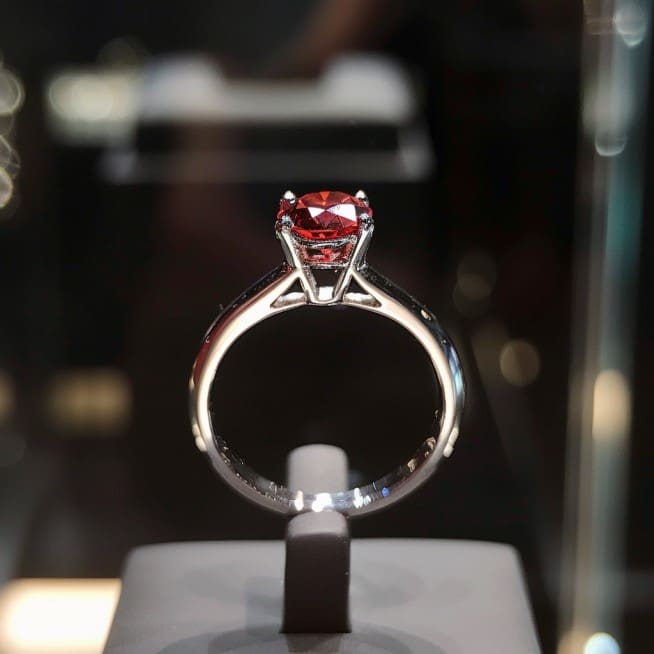
The market for red diamonds is marked by an exclusive blend of rarity, beauty, and investment appeal, making these gemstones highly prized collectibles. Due to their exceptional scarcity, red diamonds often command premium prices, with their value appreciating over time. Collectors and investors alike vie for the opportunity to own a red diamond, viewing them not just as stunning pieces of natural art but as tangible assets that can withstand economic fluctuations.
The allure of red diamonds extends beyond their captivating appearance to their status symbols within the realms of luxury and exclusivity. Each sale of a red diamond at auction tends to set new benchmarks, reflecting the intense demand and limited supply. This dynamic has cultivated a niche yet robust market, where the acquisition of a red diamond is seen as both a mark of prestige and a savvy investment strategy, ensuring these rare gems continue to fascinate and attract attention worldwide.
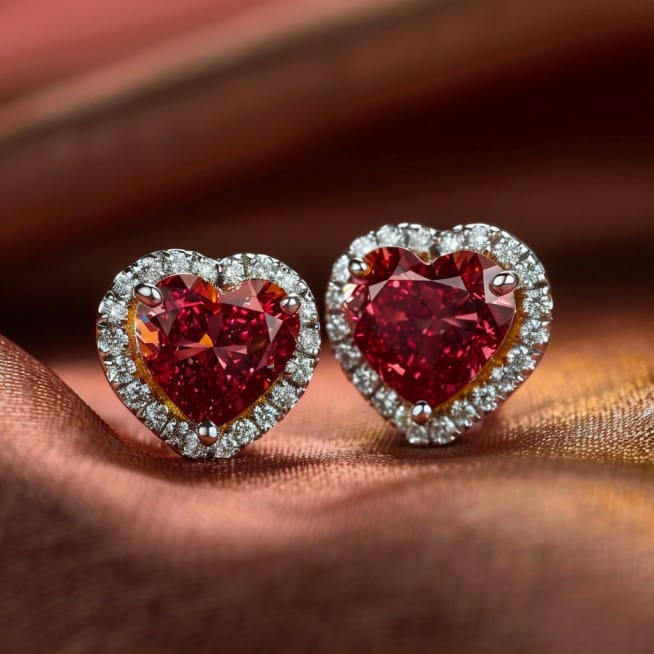

The Moussaieff Diamond: The Largest Red Diamond
The Moussaieff Red Diamond, a marvel in the world of gemstones, holds the title of the largest red diamond known to exist. Discovered in the 1990s in Brazil, this exquisite gem weighs a notable 5.11 carats, a size that is extraordinarily rare for diamonds of its color. Its captivating hue is classified as Fancy Red by the Gemological Institute of America (GIA), a designation that underscores its exceptional color purity and intensity. The Moussaieff Red boasts a triangular brilliant cut, also known as a trilliant cut, which enhances its brilliance and showcases the deep, vivid red that makes it a singular treasure. Originally named the “Red Shield,” it was acquired by the esteemed Moussaieff Jewelers, a purchase that led to its current appellation. The Moussaieff Red Diamond’s combination of remarkable size, mesmerizing color, and flawless cut places it among the most legendary and sought-after diamonds in history, embodying the pinnacle of rarity and beauty in the natural world.
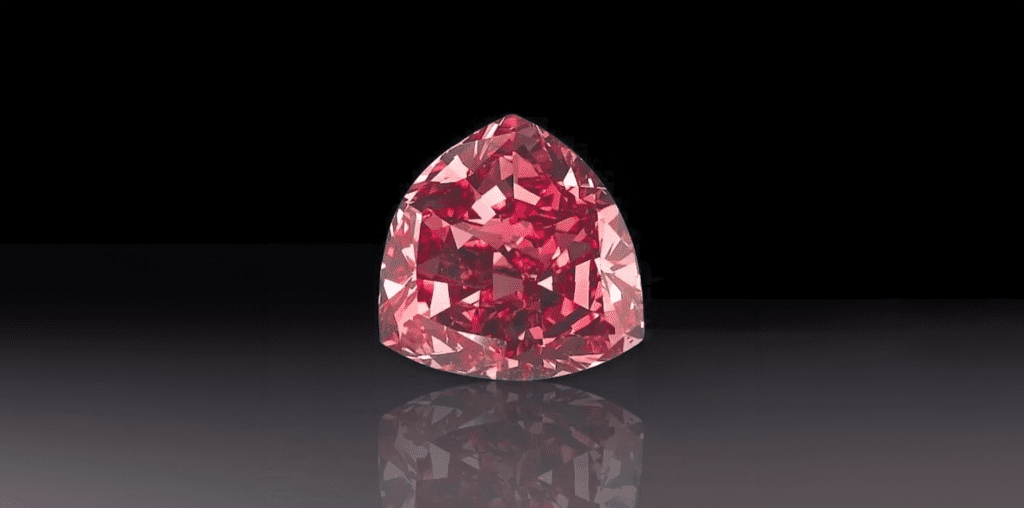

Revitalize Your Treasures: Diamond Replacement Services
Dreaming of bringing a cherished birthstone piece back to its original glory? You’ve found the perfect sanctuary for reviving precious memories.
Gemstones are the heartbeat of any jewelry piece, imbuing it with life and radiance. Yet, they are also vulnerable to damage. Be it a diamond that’s become loose, gone missing, or bears the marks of time, we are committed to rekindling the spark of your valued treasures. No challenge is too great; we promise to restore your jewelry’s shine, making it as luminous as the first day it graced your presence.
Our dedicated team of experts is adept at sourcing the precise gemstones your unique piece requires. We recognize the distinctiveness of each gem and the meticulous care needed to match its original luster and quality. Our Professional Stone Sourcing team ensures every gem, even those overlooked by others, is replaced with one that matches the excellence your jewelry deserves.
Explore our Diamond Replacement Services to discover how we can breathe new life into your Diamond, restoring its mesmerizing brilliance for years to come.
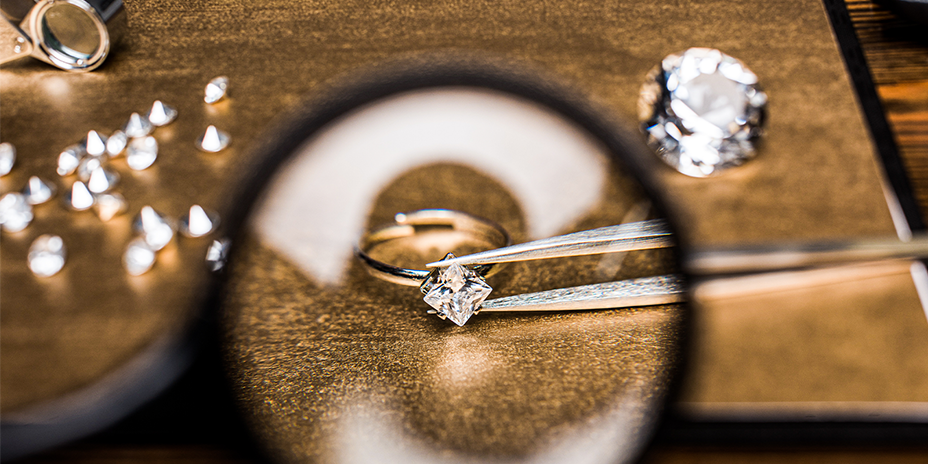

Resources:
- Red Diamonds – The Rarest of them All: https://4cs.gia.edu/
- The Red Diamond: Everything You Need to Know: https://www.cleanorigin.com/
- What To Know About Red Diamonds | Meaning, Quality, & Cost: https://www.unclaimeddiamonds.com/
Explore the Magic of Our Gemstone Services!
We are proud members of the

Our team includes gemologists certified by

